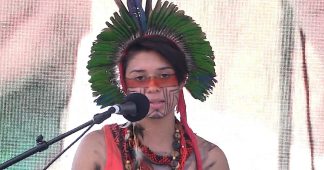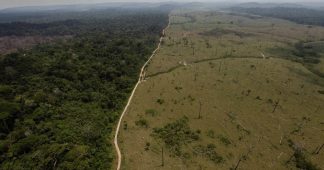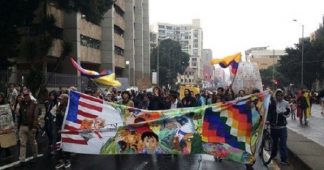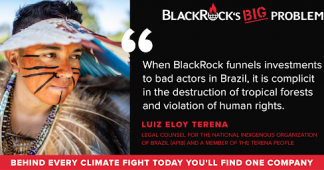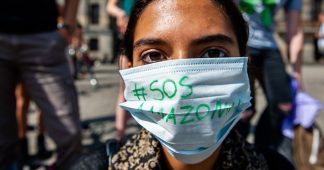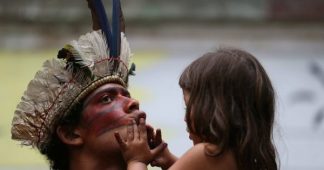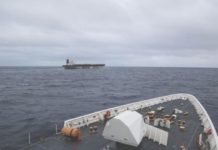December 04, 2019
Democracy Now! sat down with indigenous leader Davi Kopenawa, one of this year’s Right Livelihood Award honorees along with the organization he co-founded, Hutukara Yanomami Association. Kopenawa is a shaman of the Yanomami people, one of the largest indigenous tribes in Brazil, who has dedicated his life to protecting his culture and protecting the Amazon rainforest. He says indigenous peoples in the Amazon are under threat from business interests, as well as politicians, including far-right President Jair Bolsonaro, who has a long history of anti-indigenous statements and policies. “He doesn’t like indigenous people. He does not want to let the Yanomami people to live at peace, protected. … What he wants is to extract our wealth to send to other countries.”
Transcript
AMY GOODMAN: Last night, I sat down with Davi Kopenawa, who is a Right Livelihood laureate along with his organization Hutukara Yanomami Association. Kopenawa is a shaman of the Yanomami people, one of the largest indigenous tribes in Brazil, dedicating his life to preserving his culture and protecting the Amazon rainforest. I began by asking him to talk about the threats facing the Yanomami people.
DAVI KOPENAWA: [translated] My name is Davi Kopenawa Yanomami. I am a representative of the Yanomami people in Roraima and Amazonas states in Brazil. My peoples, the Yanomami, is a sacred people. Up until today, the non-indigenous peoples haven’t recognized where we come from, where we were born. And that is why the non-indigenous society is always messing up with our homes, destroying our land, our territory, contaminating our rivers, killing our fish and hindering the health of the Yanomami people, who are now contaminated by men, men who came and contaminated our home.
Read more at https://www.democracynow.org/2019/12
